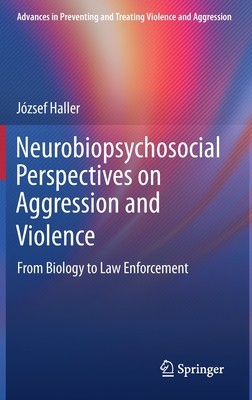| Neurobiopsychosocial Perspectives on Aggression and Violence: From Biology to Law Enforcement 2020 Edition Contributor(s): Haller, József (Author) |
|
 |
ISBN: 3030463303 ISBN-13: 9783030463304 Publisher: Springer OUR PRICE: $132.99 Product Type: Hardcover Published: September 2020 |
| Additional Information |
| BISAC Categories: - Psychology | Forensic Psychology - Social Science | Criminology - Medical | Public Health |
| Physical Information: 0.81" H x 6.14" W x 9.21" (1.51 lbs) 351 pages |
| Descriptions, Reviews, Etc. |
| Publisher Description: This book bridges the gap between basic science, which deals with general concepts of aggression and its neurobiological foundations, and law enforcement as one of the applied fields of aggression research. It addresses the current state of research and practice and compares and integrates the concept of aggression with violent crime. Chapters examine the types of criminal careers that cross the boundary between the two and summarize the biological, psychological, and social factors that underlie particular types of criminal careers. Subsequent chapters discuss overlaps between biological and psychological factors and detail how and to what extent aggression may serve as explanatory mechanisms for violence. The book also discusses the relationship between social problems and neuropsychological deficits, addressing how the neuropsychological deficits lead to the intergenerational recycling of social problems. Finally, the volume explores violence and aggression from a neurobiological perspective. Topics featured in this book include:
Neurobiopsychosocial Perspectives on Aggression and Violence is a must-have resource for researchers, clinicians and other professionals, and graduate students in forensic psychology, criminology/criminal justice, public health, developmental psychology, psychotherapy/counseling, psychiatry, social work, educational policy and politics, health psychology, nursing, and behavioral therapy/rehabilitation. |